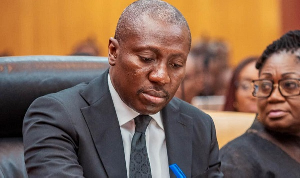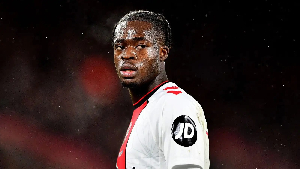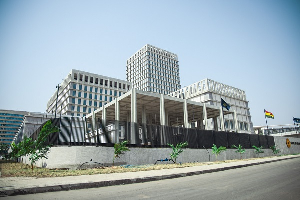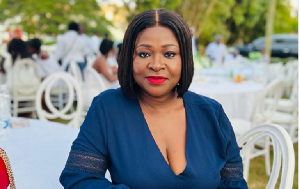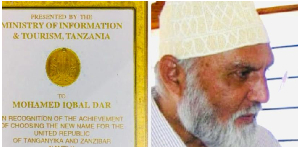The Tragedies of African Democracies: why the best doesn’t mean good
(Part III)
Politics of Self-aggrandizement
In the United States, we all followed the euphoria that marked the triumphant entry of Obama to the White House. He inherited a sinking ship, the world was told by his lieutenants. The national debt accumulated over a period of time from two unnecessary wars – the Iraq and the Afghan wars – plus the long term weakening of the US economy as a result of emerging global competitors in areas where the US and Europe once held competitive advantages. Not even billions of dollars in economic stimulus dose expected to kick start the once buoyant economy from its slumber could wake a sleeping giant. In the face of these difficulties, the US president proposed a freeze on the salaries of some two million federal workers for five years, intended to save the country an amount of US$5 billion. With a record debt of US$14 trillion, economic pundits regarded it as tiny drop in an ocean.
Whether it was the right decision or not that is for the taxpaying Americans to debate and decide. But the moral philosophy behind the decision should not be lost on us – a desperate situation requires desperate measures. And in his words, “if Small businesses and families are tightening their belts, the government should, too." Both houses of congress had already been made to forfeit an automatic US$16 000 annual cost of living increase, while the president’s remuneration of US$400 000 a year has not changed since 2001.
It is particularly commendable and courageous considering the political atmosphere in Washington when this proposal was tabled. The supreme interest of the nation took preeminence over any party, personal, and political considerations, especially when the republicans are expected to flex more legislative muscle than they had done after the Tea Party revolution has swept many democratic seats in the midterm elections of 2010.
The important lessons are that while the US government makes frantic efforts to reduce public expenditure directly related to its functionaries, it also increased financial resources to the ordinary Americans, for instance through the stimulus packages and tax cuts, but for us on the other side, the comfort of state functionaries is most paramount. Interestingly, an environmental tax was even slapped on sachet water in NDCs 2011 budget statement, increasing what the ordinary Ghanaian pays for such a basic necessity.
I have been wondering if politics in Ghana and the African continent actually means being able to tell the most lies and acting as though the politicians are the ones who elect the electorates and not the other way round. Trust among men seems to evaporate into thin air as soon as they cross that doorsill to call themselves politicians. In the 1998, Peter Harrold, World Bank Country Director for Ghana is on record to have estimated Ghana’s economic health to be doing very well, if not excellent. But by the time the NPP government took the helm of affairs, they authoritatively stated how the economy was ruined by the previous administration, for which reason Ghanaians needed to tighten their belts. Similarly, the NPP was adjudged – by whichever economic benchmark – as leading the country in the right direction with the most prudent economic policies which were yielding results. Even its economic minister was adjudged by some unscrupulous institutions as the best finance minister in Africa at the time. But again, when the new government of the NDC assumed leadership in 2009, even after two years, they continued to attribute their failures to honor this or that campaign promises to the terrible state of the economy hey inherited. This is not going to be the end of this blame game. The NDC would not remain in power forever, once we hold onto the path we have chosen for ourselves as a country – the democratic project – governments would come and go, but for how long politicians would continue to blame their inactions and misdirected actions on a previous government continues as long as politics exists.
In my adult life, I have witnessed a change of government from one party to another twice – from the ruling NDC to NPP in 2000, and from the ruling NPP back to the NDC in 2008. I have no doubt that this two party tradition is going to stay for a long time to come, especially as the other smaller parties are not doing well enough to challenge these two parties. Perhaps, the fact that the two parties have even metamorphosed largely into ethnic groupings would also make it difficult for a third force to sell itself successfully, weaning voters away from their ethnic inclined political enclaves towards rational politics. It is more so when the most known faces of a third force – the CPP of Dr. Kwame Nkrumah, the party of independence – have all become spokespersons or publicists for the two most formidable parties in the country. This in itself leaves their own party to which they claim ideological baptism and adherence in complete disarray. And a clear reason why the two party systems, as it conveniently exist now in Ghana would continue in the foreseeable future.
When the two political parties largely tend to resemble each other in practical terms except in their ethnic compositions and their avowed guided or stated ideological principles or beliefs, the latter a far cry from the practicalities of politics, then the electorate must have recourse to reexamine what differentiate the two without amnesia or “a forgetful syndrome.” A handy incident would suffice to drive the point home. In 2006, during the World Cup in Germany, the NDC accused the NPP of financing 150 of its “serial callers,” serial callers being a pet name for individuals who are supposedly on government payroll who continuously phone into phone-in segments of political debates on radios and TVs to sing government’s praise, as a way of bolstering support for the government, and this applies to both parties. The NPP did not only deny the allegation. It went out of its way to issue a press statement identifying those it sponsored and the source of their funding or sponsorship, but fell short of explaining how one of its own, a well-known serial caller who couldn’t have afforded the expenses associated with such a travel, arrived in Germany. The issue rubs so much on all aspects of governance – accountability, transparency, management of the financial portfolio of corporate Ghana, and expenditure on frivolity in the face of more important competing national priorities.
Four years later, a government that had accused its predecessor of frivolous expenditure on party foot soldiers and affiliates was to commit national resources into sponsoring about 2000 party praise-singers to a similar event in South Africa under the guise of a formula that the NDC appointed committee applied to select parliamentarians, the clergy, and leaders of political parties to cheer the Ghana Black Stars in the 2010 World Cup. To the extent that some officials could even travel with their drivers, housemaids and children, one begins to ask about the overall cost to the taxpayer. If officials require tailored services they are used to at home and had to travel with a driver and a maid, one begins to question the wisdom in lodging in a five-star hotel.
That was not all. It was later discovered that more than a 2000 supporters of the national team made the free trip – board and lodge cum travel expenses paid for by government cum supposed philanthropists - to South Africa. While the Progressive Nationalist Forum, a pressure group, estimated the numbers who made the trip at 2500 people which cost US$6 million, government spin doctors put it at 1500 people at the cost of US$1.5 million, with the 500 sponsored by philanthropists through the NDC. As though that was not insulting enough to the intelligence of the taxpayer, when concerned taxpayers raised the issue on the source of finance, mode of selection, and choice of priority for a country whose economy was still in “intensive care,” the official response from its Propaganda Secretary was that the party “owed nobody no accountability, and those demanding accountability were enemies of progress.”
“Does demanding to know the source of funds for such a frivolity make one an enemy of progress?” a friend, awed and exasperated by the incident, called me to ask. He was exasperated and disappointed because he felt that should not be happening under the leadership of a tax law professor who should understand issues of accountability much better than anyone else in his government. My friend must have failed to appreciate the fact that he cannot appreciate this issue from Western lenses. In his country, those philanthropists must declare their magnanimous acts to the tax agency when they file their annual earnings for which they may receive rewards in tax refunds for their munificent. But as it were, even the coolheaded among them dare not question this dangerous posturing of government. The party whips – party executives and fundamentalist ideologues – would be quick to throttle any dissenter with their venom before he or she could let slip an honest opinion.
How can a party that pride itself of being pro-poor commit this daylight financial impudence against the very poor it claims to protect? NDC must have lost its bearings completely from the underlying ideologies it claims to profess. Assuming, as the NDC has always tried to portray, that the NPP is profligate and the NDC is penny-wise or economical in its actions, how do you justify this expenditure to a discerning electorate whose taxes are spent anyway on this political misconducts or profligacy? Going beyond the act itself to even examine the mode of selection of beneficiaries, would it not have made sense to even put the whole process through a lottery which would pick winners, limiting human influence in the process, and offering opportunities to all manner of Ghanaians, including the very poor they profess to stand for irrespective of party affiliation, ethnicity, social standing, and religion, among other colorations? After all, members of the clergy, parliamentarians and party leadership are individuals who can afford to travel to South Africa on their own anyway.
Based on the ideological underpinnings of the two formidable political parties – the NPP professing liberalism and the NDC professing social democracy – how do these actions fit into the ideologies of the two parties without raising questions of inconsistencies? But as it were, it is not the ideologies, it is not the principles, neither is it the concepts, it is simply politics of convenience, informed by old political fault lines with a blank check from party fanatics, so leadership acts with impudence.
Even at the commonsense level, would it not have been more prudent to mobilize a great number of Ghanaians who are already resident in South Africa and provide them with tickets to visit the stadiums to offer their support to the national team, obviating the need for tickets, hotels bills, travel expenses, and all the manipulations involved in this exercise? After all, on occasions like that who is more in tune to offer that moral support, in the Ghanaian way - in pulsating yodel and cavort - to the national team: the official sitting in the VIP lounge or the ordinary Ghanaian?
My long years of schooling has exposed me to many individuals from whom I have learnt very invaluable lessons whether for good or for bad. I can’t remember how I came to share the same house with a fellow Ghanaian lady from the northern part of Ghana. It doesn’t really matter where in Ghana she comes from, but I made that classification for a point I would illustrate as I progress. As we shared our stories, she disclosed to me that her husband worked for the NDC at the seat of government, the Castle, or Ghana’s White House. When the NDC lost favor with the electorates and was routed out in 2000 by the NPP, it was supposed to be the end of his career, especially with the level of political acrimony that pervades the corridors of power in Ghana.
Being acquainted with a top official of the incoming administration at personal levels, he quickly visited him and negotiated behind the scenes for the new administration to keep him. According to her, the husband indicated that there was nothing to go back to in his native North. After a long discussion with the incoming official, he agreed to keep him only if he was ready to denounce and renounce the NDC publicly to which he agreed. When she questioned his political philosophy and commitment to the NDC as a party, and on an ideology he once claimed he could lay down his life for, he told her off. It was clear to her that her husband had abandoned ship. Although she felt that was unethical, there was nothing she could do to change a man who had placed his personal interest before any other considerations. He was not one of Kofi Awoonor’s comrades, in his African Predicament, who believed the revolution could go on even on an empty stomach, as in the case of autarkical Cuba.
Some two or three years down the line, she became a beneficiary of her husband’s decision which she could not reject. He came back home one evening with a Ghana Education Trust Fund (GETFund) scholarship forms and asked her to fill them in. Although she doubted her ability to qualify for a scholarship, because she believed there were more qualified people who needed scholarships, she did not have any doubt her husband could pull it through.
She filled in the forms and gave them back to him. She was later called by the Director of scholarships and went to meet him at the GETFund offices. According to her, the meeting was very casual and did not in any way depict the grueling interview or screening process she had envisaged. The rest was history. She would later receive a letter in the same manner from the GETFund offering her a scholarship to study for an Mphil in England, and thus ending up in England for her Mphil course.
By all academic standards, this was a woman who simply could not justify this huge investment. A professor back then in the UK once asked what criteria the government of Ghana used in awarding its scholarships. She had apparently encountered many awkward situations in her career where Ghanaians and some Africans who arrive with funding from their governments, are unable to justify the investment by all academic standards. Strangely enough, self-financing students, surviving by juggling their studies with menial jobs fare academically better or tend to work harder.
She never understood what was happening until she decided to follow up on students’ admissions. Those who arrive with their national government scholarships are not necessarily the caliber of scholars worthy of financial support. They are not necessarily individuals with the most potential to succeed in graduate school. That cannot be said of students who are on British Commonwealth scholarships, DfID and other international scholarships. To have gone through the rigorous selection process of these institutions and be selected simply means they are the most qualified and the most promising.
Until I left England, this woman had not completed her studies, even though the stipulated time for completing her study had long elapsed. If scholarships are supposed to provide opportunities for the men or women with the most potential in the hope that they pay back to society by bringing new innovations from new life advancement discoveries, then we must have failed to appreciate that as a people. Education has, therefore, failed to attract and celebrate the best. The idea that higher education must be a place of opportunity for the most talented – so far as aspiration can seek in proportion to ability - is defeated.
The sons and daughters of Chorkor, the female porters (kayaye) under the scorching sun in Accra central who carry loads heavier than double their own weights with a baby strapped at their backs, the fishermen of James Town who still use antiquated technology, the teachers who cannot afford three square meals a day, and the secondhand cloth dealers at Tema Station, this is your story. The Valued Added Tax for which four able bodied men were gunned down, gave birth to what is known as the GETFund, and from the GETfund, a thank you package has been instituted to placate political appointees and their cronies, who can afford to send their children, wives, and friends abroad without resorting to the fund anyway.
Going back to the NDC era, I recollect vividly in 1996 when my friend and a neighbor won the coveted Best Science student from Ghana award. We were all convinced that he had justified his academic potential or prowess by all standards. At the award ceremony, his late dad was very blunt in his statement when he was given the opportunity to make one. “I am but a fitter,” he said, in apparent reference to his trade as a mechanic. He simply meant that even in his modest status as a mechanic, he was able to raise up a child who could achieve the feat of toping the whole nation in science.
At that point I felt that my tax would have been prudently expended through the scholarship secretariat if individuals of that caliber are awarded an automatic scholarship to take the pressure of financing of their education from their parents and to make life much easier for them on our university campuses. But that wasn’t the case. I encouraged him to come with me to meet the Educational Minister, Harry Sawyer. After his initial reluctance, he finally came with me to meet the minister. To our utmost dismay, the latter told us that all scholarships had been removed from the education ministry to the seat of government, and if we still wanted to, we could go to the president’s office. The statement was astonishing, coming from the minister in charge of education.
Some argue that in awarding scholarships, countries with limited resources like Ghana must first and foremost evaluate the propensity of the beneficiary to return home and contribute before these scholarships are awarded. But the question is how do you determine that by this or that set of standards a beneficiary would return? Indeed, some would return and some would not. Therefore these considerations are as antiquated as the minds that continue to hold onto these outmoded ways of thinking. Let’s consider the journey of Ave Kludze, a Ghanaian space scientist with NASA, his contributions to the field of space science does not benefit only the United States, but the world at large. In his own words, space technology powers mobile connectivity from which even Africa benefits. The lesson is that when individuals are sponsored with the people’s tax, there should be the conviction that they are the best our country could offer. They would excel anywhere under any circumstance, therefore, their contributions would be meaningful to the advancement of knowledge wherever they find themselves. After all there have been many sponsored by the peoples tax who showed more signs of returning home but never returned at the end of their programs.
Returning to my story, being who he is: someone who believes that no matter what the obstacles are, quality somehow blooms at the end of the day, he would rather not attempt going to the seat of government in search of funding. In 2004, the fellow was again looking for funding for his postgraduate studies, having once more emerged at the top of his class, but this time were high school teachers who could afford to seat at home and be awarded the peoples tax to study abroad. Weighing these two individuals on a scale of probabilities, it is obvious that one carried more potentials than the other. This is not to say that high school teachers do not deserve to pursue higher education sponsored by the state. But the question is how many high school teachers have the opportunity to compete for these scholarships and are awarded to pursue further studies? If it is a new government policy that high school teachers are awarded government scholarships to study abroad, then it must be publicized so that the teacher at Jaman South in the Brong Ahafo Region and the teacher at Dzelukope in the Volta Region can all apply and have a fair consideration.
Today NDC is back in power and this time scholarships are for sale to the highest bidders. It is disheartening to come across terrible situations of individuals who cannot pass their basic examinations holding Ghanaian scholarships worth tens of thousands of US dollars, while the most talented and promising individuals are denied these opportunities. I bet if the scholarships that aided the sitting president in his graduate work were dispensed or awarded in this manner, I am certain that he would not have acquired higher education.
Ghana has gone through five successful elections in the last 18 years, with power changing hands between the opposition and the ruling government twice - in 2000 and 2008 – what some seek to portray as the strength and the growth of her democracy, depending on which part of the political divide one belongs to and the political season. If in spite of institutional failures, a somewhat peaceful change of government can pass for the strength of a country’s democracy, then it would not be long before that democracy would spin on its head into some spiral anarchy. Despite Ghana having successfully conducted five successive elections without derailing the peace, her institutions have remained antiquated and incongruous with her supposed democratic credentials. If the 1996 institutional failings that confronted the Ghanaian are still the same ones Ghanaians continue to grapple with irrespective of change of governments, then the question arises if democracy is a tortuous and a painful process that leads nowhere.
Keep tuned in…
The above-title is serialized into 30 articles covering issues of politics, corruption, education, immigration, the economy (Ghanaian economy), unemployment, land tenure, dearth of policy innovation, and stories from the frontlines – Cote d’Ivoire, Kenya, ECOWAS and the AU. The series are syndicated and media houses/outlets interested in enriching the national debates in Ghana for the 2012 are free to publish all the series.
By: Prosper Yao Tsikata
Email: pytsikata@yahoo.com
Opinions of Wednesday, 12 October 2011
Columnist: Tsikata, Prosper Yao






